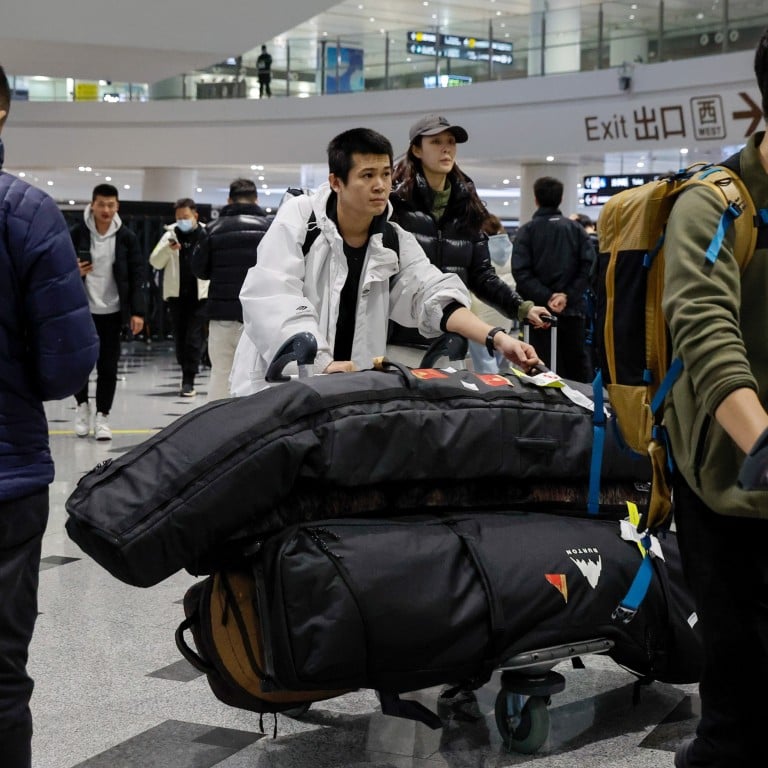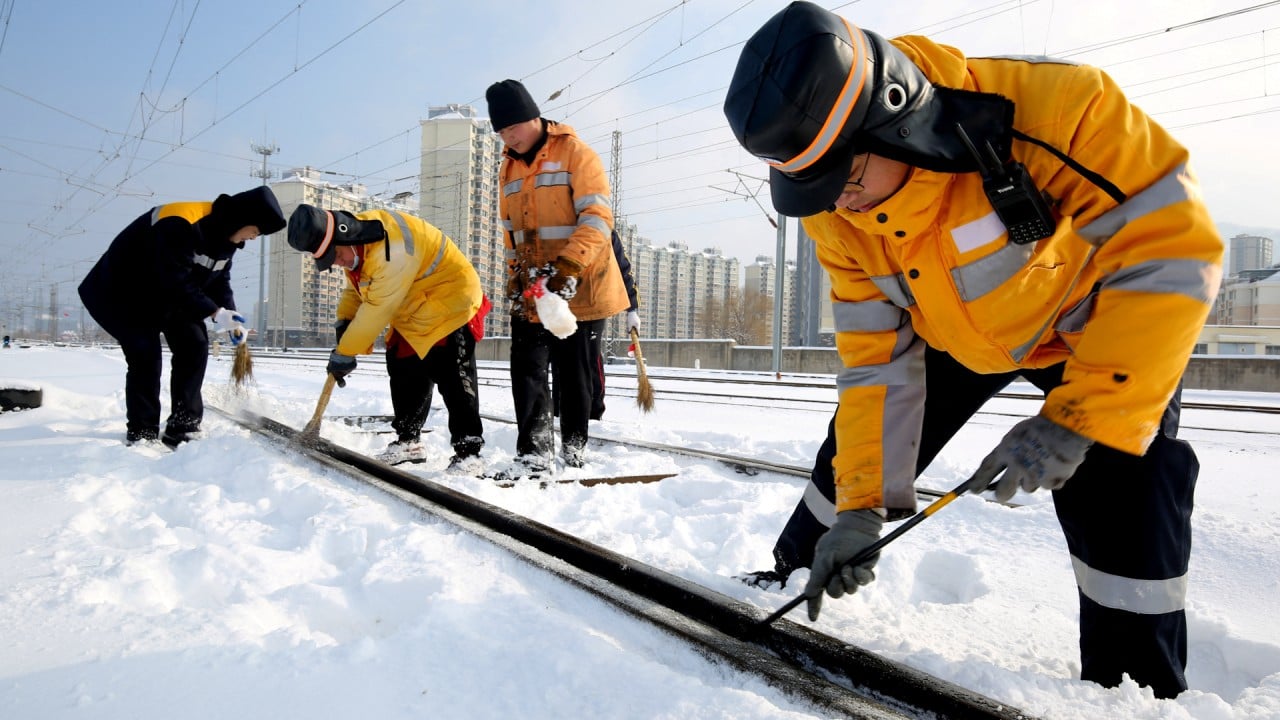
China’s Lunar New Year holidaymakers head overseas to release pent-up post-Covid demand for travel
- Bookings for international flights and hotels surge over the break, according to an online agency
- But long-distance bus trips are down, pointing to pain at the bottom of the economic ladder, analyst says
Online travel agency Qunar said international flight bookings for the eight-day break were up 14-fold compared with the same holiday last year, taking Chinese tourists to 1,754 cities in 115 countries.
Overseas hotel bookings quintupled, it said.
According to the Ministry of Culture and Tourism, domestic tourists collectively spent 632.7 billion yuan (US$87.7 billion) during the holiday, or about 50 per cent more than they did during the 2023 Lunar New Year break.
A total of 474 million domestic trips were made across the country, marking a 34.3 per cent year-on-year increase and a 19 per cent rise compared with 2019, according to ministry data.
In addition, about 6.83 million international trips were made, the ministry said.
Lunar New Year is one of the longest public holidays in China and an opportunity for people across the country to return to their hometowns.
Tourism, however, has been one of few rays of hope as people look to satisfy pent-up desire for travel after being stuck at home for three years.
Neighbouring countries such as Thailand, Japan, Malaysia, South Korea, and Singapore continued to be popular destinations, especially as Chinese passport holders can now enjoy visa-free stays in Thailand and Singapore.
According to data from online travel services provider Fliggy, holidaymakers are also going farther afield with a surge in interest in places like New Zealand, Russia, France, the United States and Egypt.
Fliggy is owned by Alibaba, which also owns the South China Morning Post.
The number of overseas transactions via WeChat Pay nearly doubled compared to the same holiday in 2023, with Southeast Asia remaining the preferred destination for most travellers.
The number of WeChat payments to buy public transport tickets in Bangkok as well as Tokyo also rose, the service’s operator said on Sunday.
Alipay – a third-party service established by Alibaba – said the number of overseas payments made by its users was also on par with the same holiday in 2019, and up by 140 per cent on 2023.
However, analysts said the data published omitted the actual amount spent compared to pre-pandemic levels, making the recovery hard to gauge.
Zhou Mingqi, founder of tourism consultancy Jingjian Consulting, said Lunar New Year travel was down by a quarter on 2019 levels if rail, road, water and civil aviation options were combined.
“Railway and air passenger transport have seen notable increases, indicative of travel among middle-class and higher-income individuals. These volumes were still unable to offset the substantial decline in long-distance bus travel,” Zhou said.
“The impact of economic downturns is always felt from the bottom up, with the poorest individuals being the first and most heavily affected. High-end tourism remains a relatively promising sector.”



